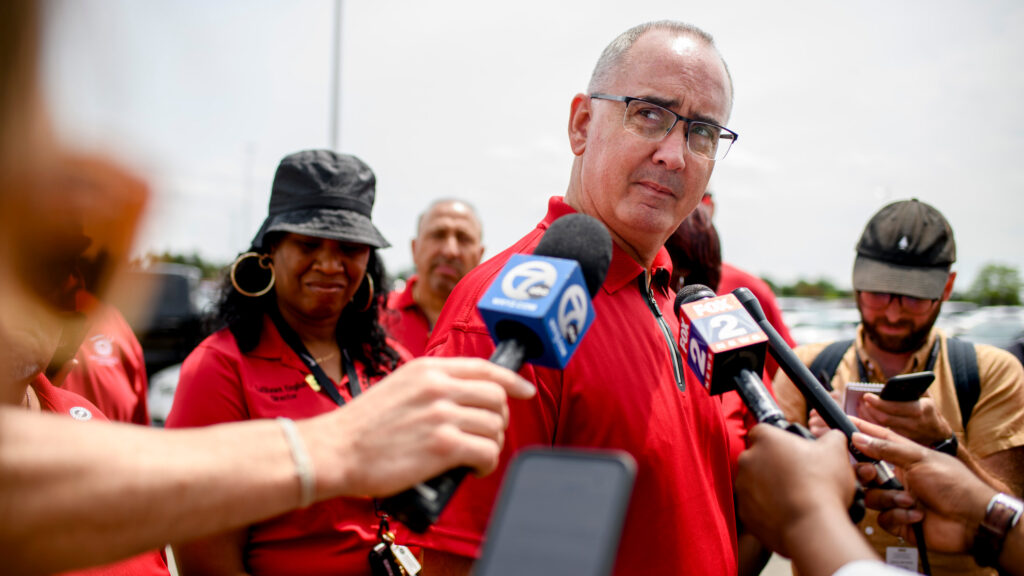A Southern Earthquake

Let’s not underestimate what a UAW victory in the South would mean for organized labor:
The United Auto Workers (UAW) has launched an ambitious campaign to unionize 13 non-union automakers across the US, and the first big test begins this Wednesday when 4,300 Volkswagen workers in Chattanooga, Tennessee, start voting on whether to unionize. Many VW workers are predicting victory.
“We’re going to win,” said Lisa Elliott, a quality control worker at VW. “We have the momentum. I know this will be a historic event.”
Elliott has worked at VW since 2019 when the UAW narrowly lost a unionization vote in Chattanooga, but she says the mood today is far different. She said most workers are jazzed about unionizing because of the UAW’s big victory in last fall’s strike and contract fight with General Motors, Ford and Stellantis, which owns Jeep and Chrysler.
“I support a union because we don’t have a voice now, and there are some serious issues that need to be addressed,” Elliott said. “If the union wins here, it will definitely encourage workers in the other factories.” The vote in Chattanooga runs from Wednesday through Friday.
The UAW’s campaign has targeted 13 companies, including Toyota, Tesla and Hyundai, that have roughly 150,000 workers at 36 non-union plants. After VW, the next vote will be at the Mercedes plant in Vance, Alabama, where a supermajority of the 5,000 workers have signed cards requesting a unionization vote.
“I have great confidence that the union drive will be successful,” said Jeremy Kimbrell, a worker at Mercedes’ Vance plant since 1999. “A majority of workers have already voiced that they’re with the union, and very few are openly against.” The National Labor Relations Board has not yet set a date for the vote.
“A victory at Volkswagen would make a victory at Mercedes much more likely,” said Joseph McCartin, a labor historian at Georgetown and co-author of Labor in America: A History. “Victories at both Volkswagen and Mercedes would be nothing less than an earthquake. This would be the biggest breakthrough in private-sector organizing in decades. It would mean that the anti-union citadel [in the south] that has repulsed effort after organizing effort has been breached.”
Stephen Silvia, a political science professor at American University who has written a book about the failed unionization drives at VW, Mercedes and Nissan plants in the south, says several important developments make victories much more likely this time around. “The UAW’s strikes last year show that the UAW can deliver,” he said. “It really was a turning point for the UAW.”
For 30 years, Silvia said, the UAW was focused on fighting austerity and often agreed to concessions, but “when Shawn Fain came in as UAW president [in March 2023], he turned things around and focused on making gains for the workers”.
Again, we will see. But a newly revived UAW coming off a real win in its rolling strikes on the Big Three, plus in a general pro-union atmosphere nationally has the best chance its ever had to win in southern auto. The total number of workers in these plants aren’t enough to turn around the entire trajectory of the American labor movement, but to see these wins would give other unions and workers the courage, momentum, and belief necessary to engage in that larger transformation. This is a really critical moment in our labor history.


